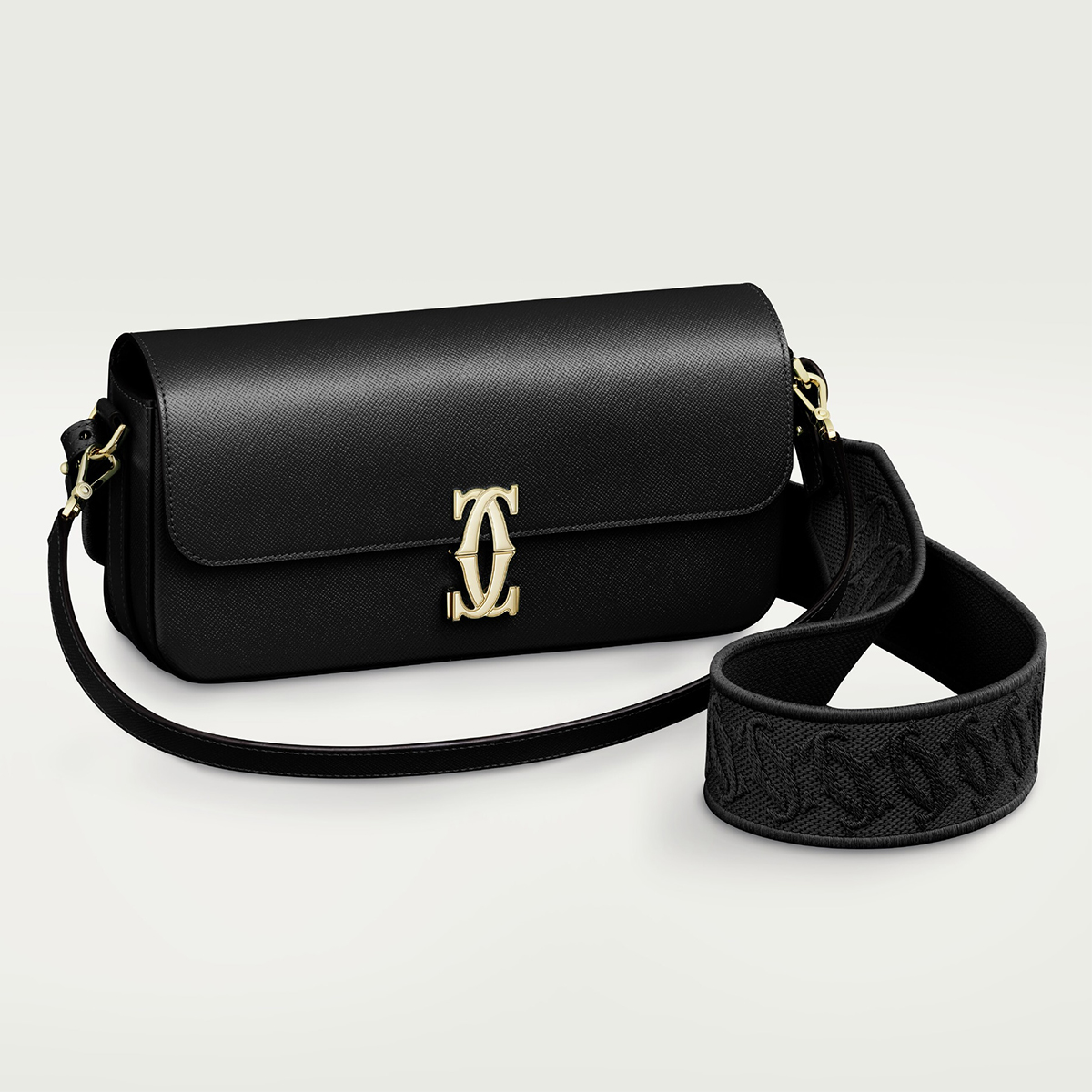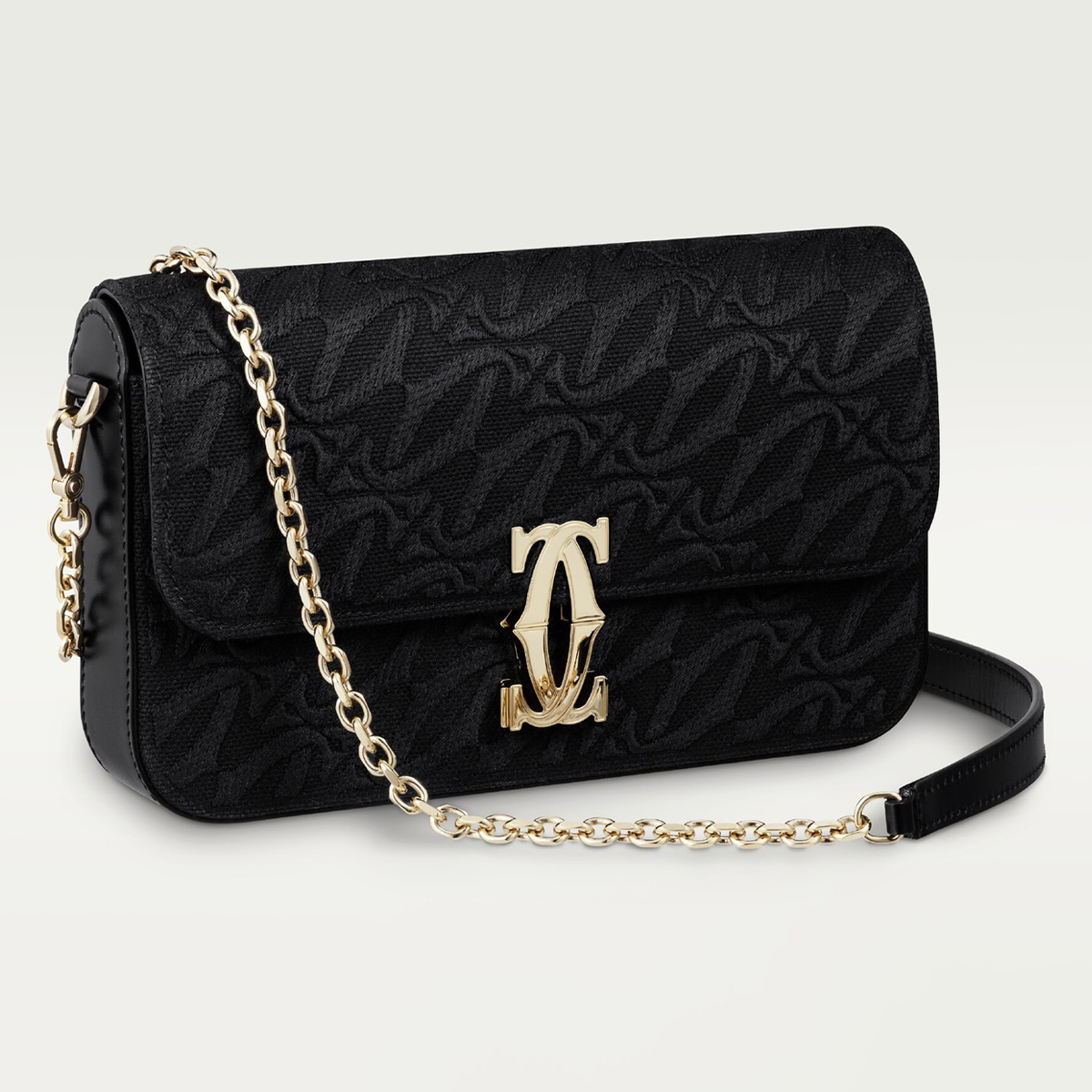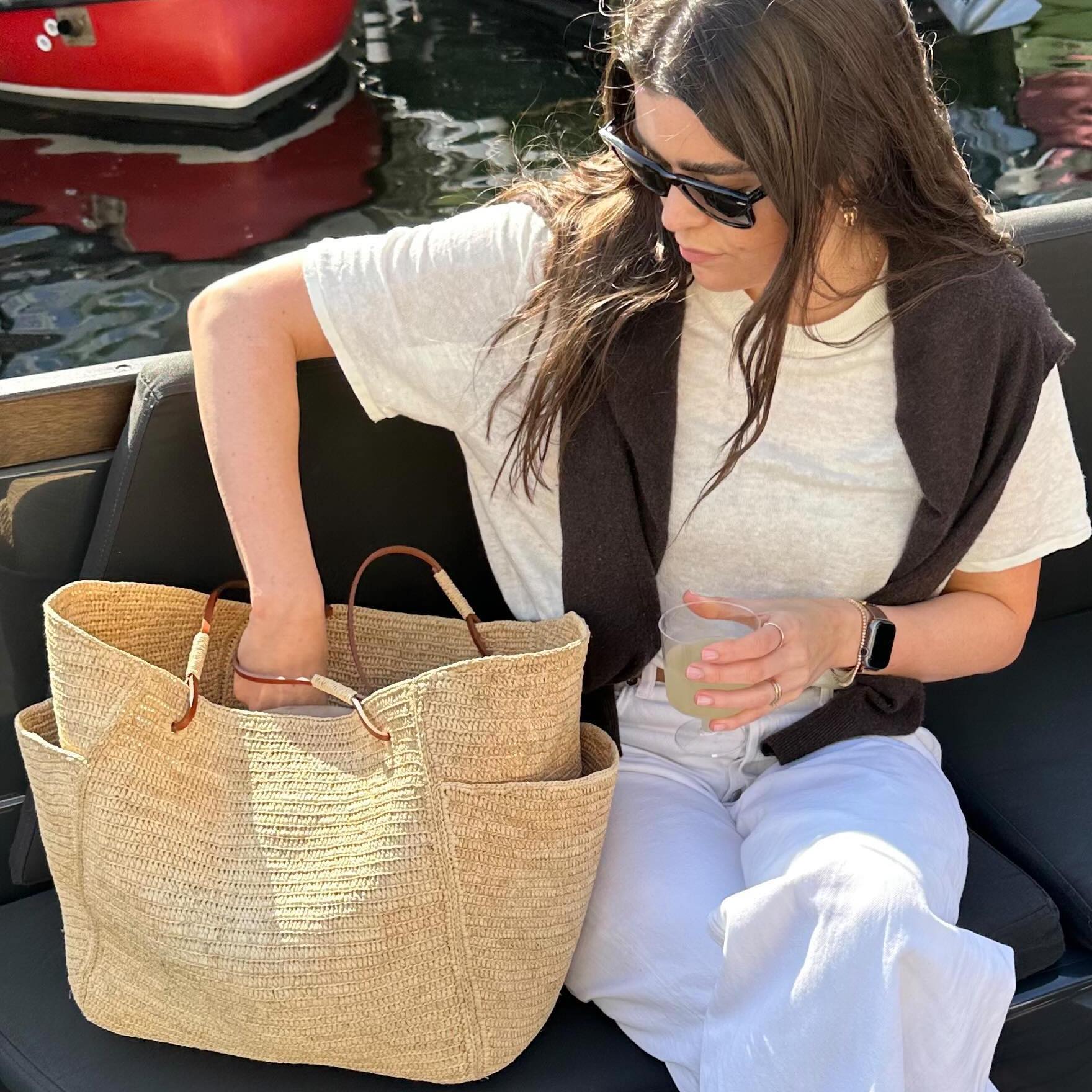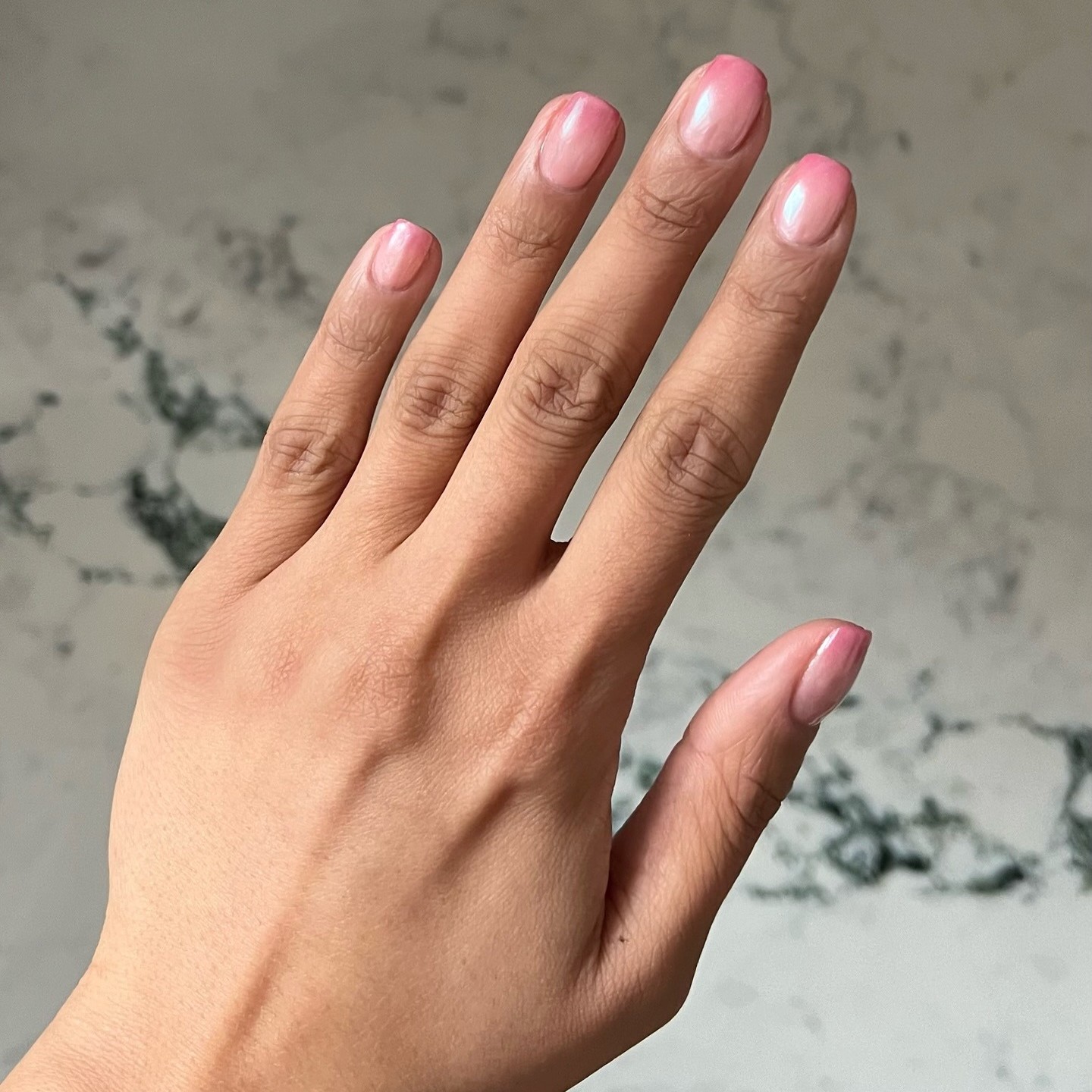Cartier's New Embroidered Bags Are the Epitome of Timeless Craftsmanship

Cartier may be best known for its watches and jewelry, but its bags are not to be missed. There’s something special about a purse made by a brand with deep jewelry expertise. The hardware is exceptional, the bags are considered objects in their own right rather than merely part of the overall look, and the craftsmanship perspective is ruled by longevity and timelessness. With over a century of design archives in the category and distinguished launches over the years, such as 2019’s Guirlande de Cartier inspired by the house’s iconic red jewelry box, the maison’s purses are notable for any purse enthusiast.
The new C de Cartier Embroideries collection is an exciting moment for the brand, marking its debut into monogram embroidery. The collection includes two bags that hold court in delightfully different spheres, united by a subtle and sophisticated take on the embroidered logo. The East-West bag is a study in contrasts (one of the houses favorite themes to explore), where a utility embroidered strap balances a precious metal clasp. A practical bag with a sophisticated presence, the unisex purse is meant to be worn either crossbody or over the shoulder. The Chain bag is the "lady" of the two and the definition of timeless style. The elegant evening purse features allover embroidery and a chain strap—no surprise Cartier does chains especially well. To learn more about the collection, I had the pleasure of joining the brand in Paris to experience the quality firsthand and dive into the craftsmanship with a leather workshop. Ahead, my interview with Creative Director Marlin Yuson on how the embroidery collection was developed, the construction details that make these bags true collector's items, and what’s next in the world of Cartier purses.
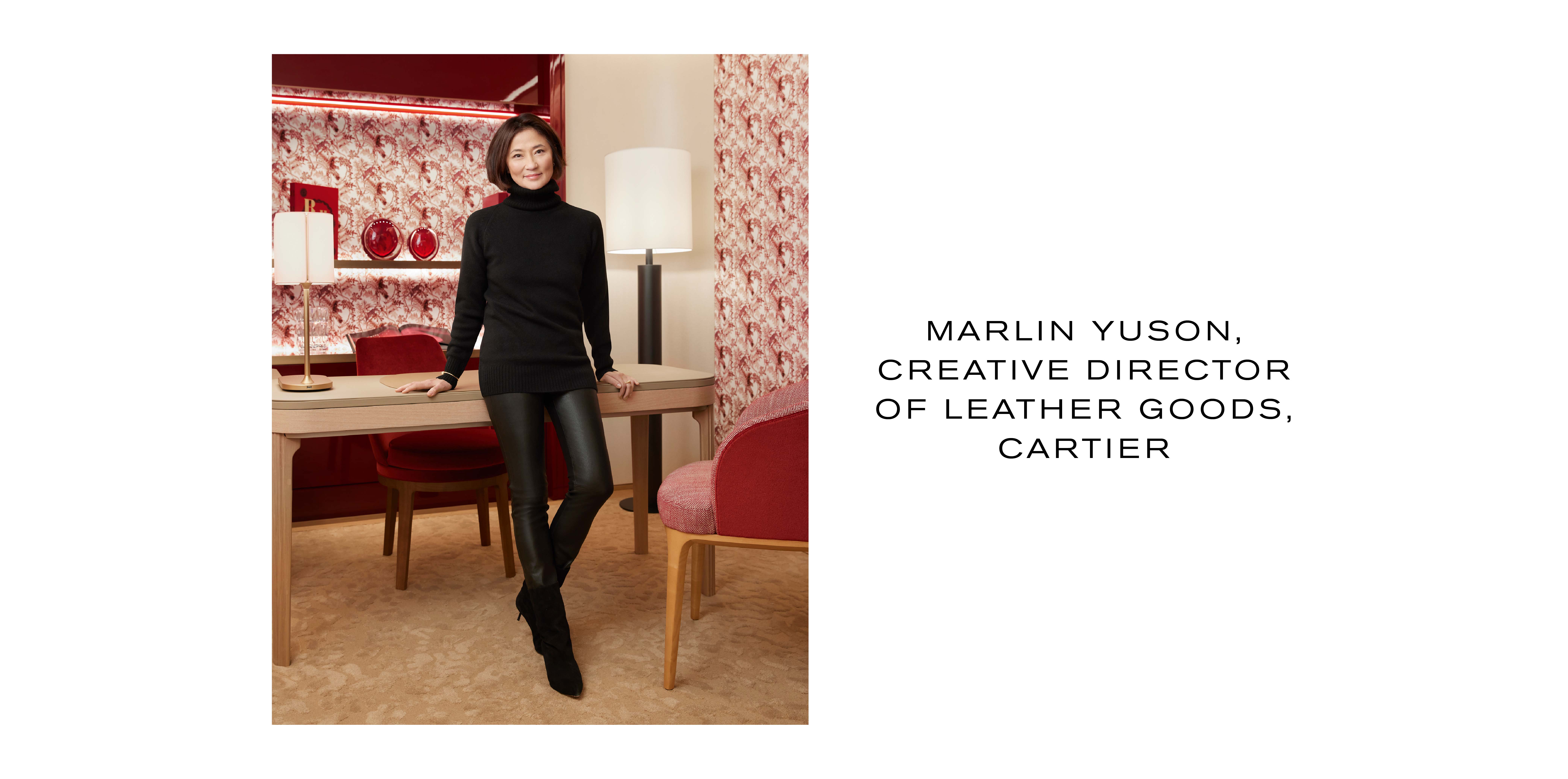
In an interview that you did in 2014, you hinted that embroidery was something that the maison might be exploring in bags down the line. Fast-forward to today, and here we are with the launch. Can you share a bit about the journey?
I went into the archives, including jewelry, and I started with a woven. We tried all sorts of patterns. We worked with a couple of mills in Italy, one up in Como that does really beautiful fabrics. Over a year ago, they did one for us that was a jacquard, and it was so couture and very beautiful. But when we mounted it on a bag, it became completely flat. The relief was all gone, and I thought, No, that's not working. That's when we decided to try embroidery, even though I initially thought it was going to be out of reach price-point wise. But we did it, and I’m really happy with the result.
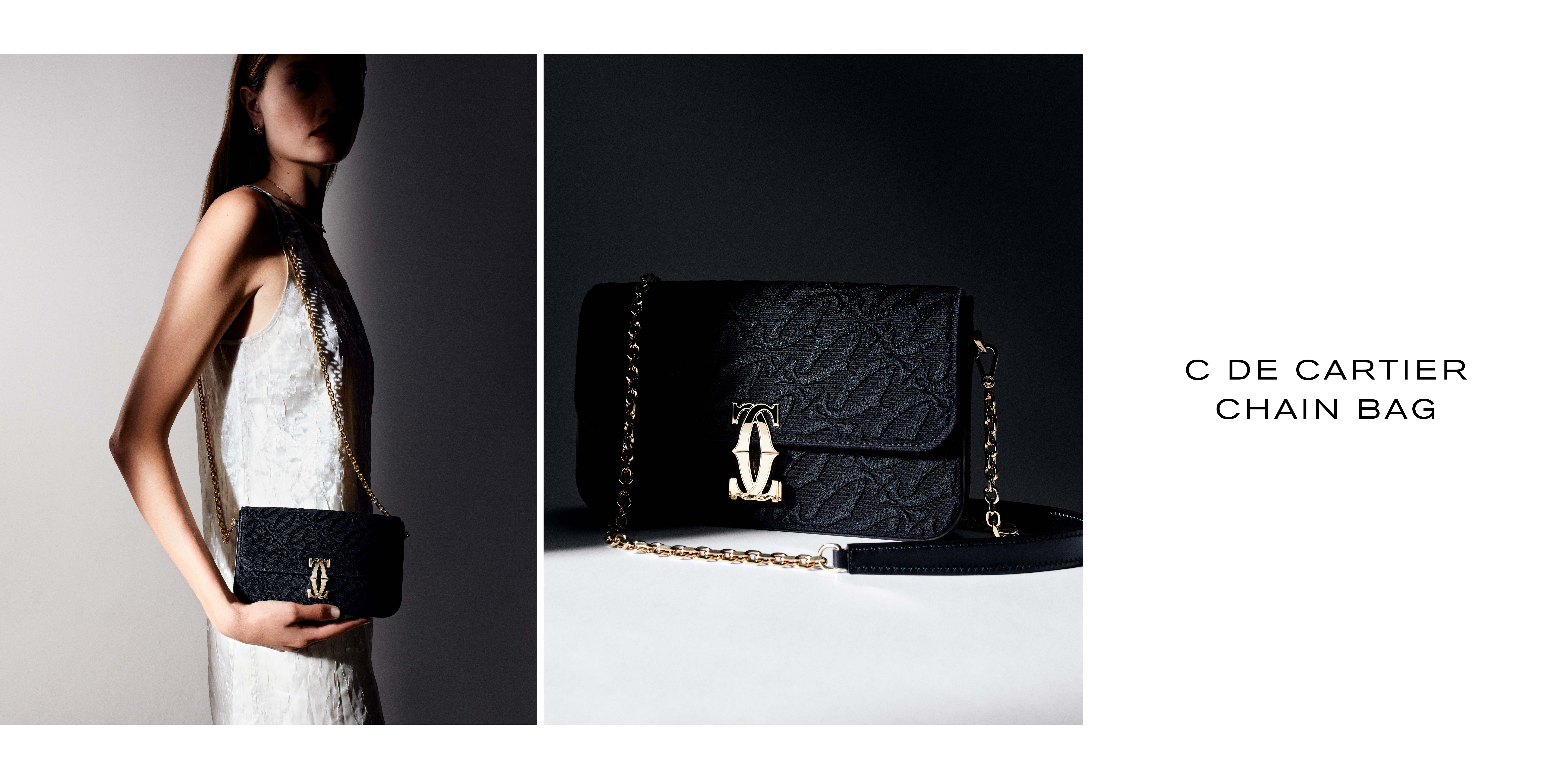
One element that sticks out to me about this bag is the clash of the precious embroidery and then the more utilitarian, city element. And I know that the clash is a concept that Cartier employs across the jewelry. Was that something you were thinking about with this design?
Yes. Embroidery is typically very evening, or cocktail at least. But for this bag, giving it that utility, unisex, day-to-night element makes it feel unpretentious in a cool way. It’s formal but also utilitarian with military references.
How did that clash get represented in the Chain bag? Tell me about having the embroidery at an angle?
The bag is is quite static. It doesn’t move, and you don’t get the draping or collapsing, so this is why I decided to turn the C’s on their side. Initially I had them straight, but at an angle they start to become more of a wave rather than lines. The angle emphasizes that above all, it is motif. I don't like to consider it a monogram or a logo, because I think it actually takes away from it.
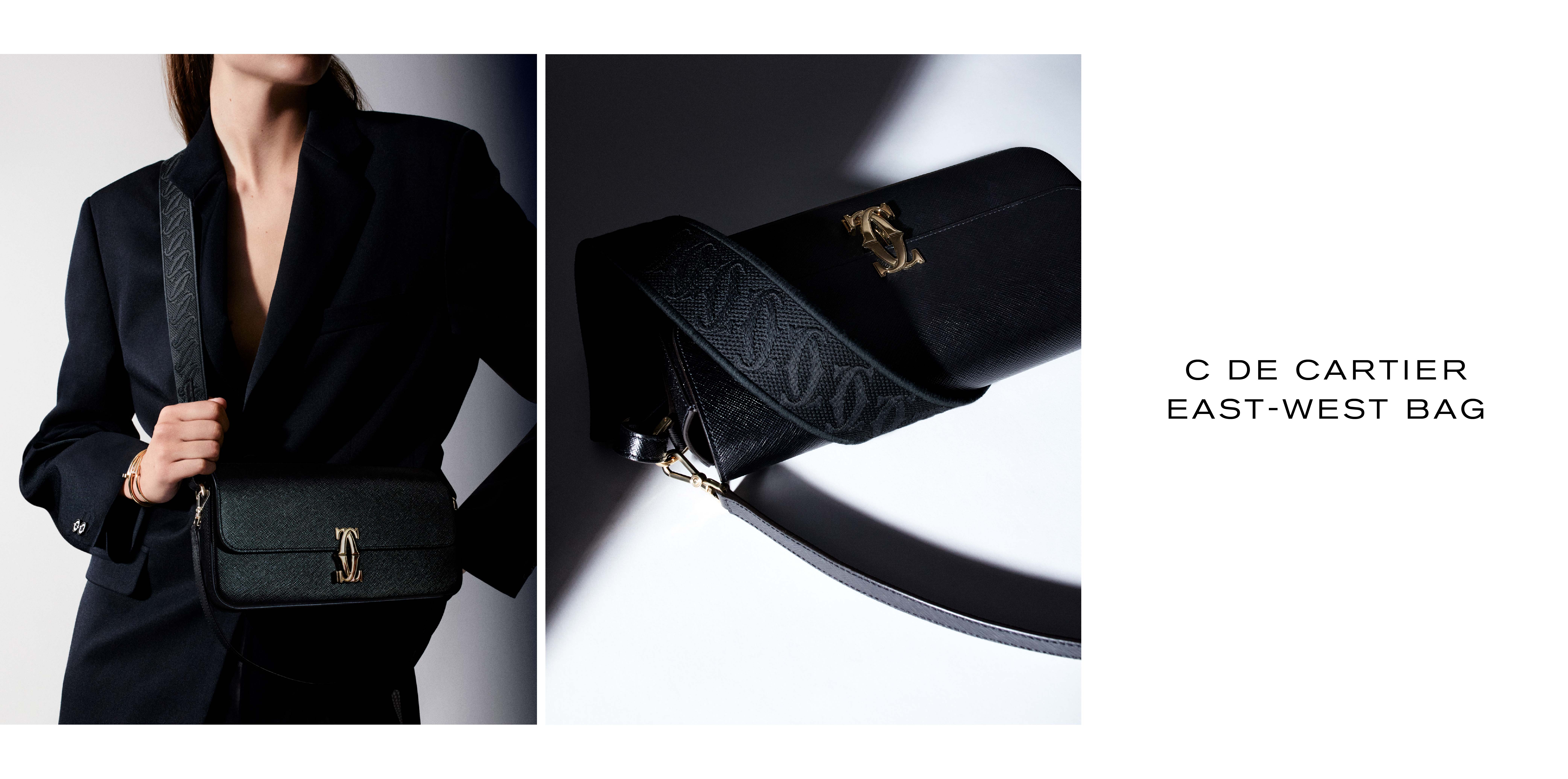
Can you share any construction details that just looking at the bag you wouldn't necessarily know?
The Chain bag is a more difficult one because it's so narrow. I love the technology behind the different kinds of sewing machines, and for this one, we use a very particular sewing machine. Not everybody wants to work on this element, because very few people can get the lines clean. There is no guide on the sewing machine keeping the stitches straight; it requires a very particular expertise. Even the slightest thread that comes out of place, you'll be able to see it. We also have screws, which is part of the Santos history. There's no machine where the screw drops in and screws itself. This kind of screw requires a very stable hand, almost like a surgeon's hand.
What percentage would you say is hand-done versus what's done by the machine?
Pretty much everything is hand-done. For example, when you're cutting the material, it's like a cookie cutter. It gets cut, but the person that's cutting has to place it on the skin so that it’s cutting the right parts; you pay attention to the grains and the direction matching up. There's also selecting the skins, picking for color. It's all very manual; there's somebody making sure it's done properly.
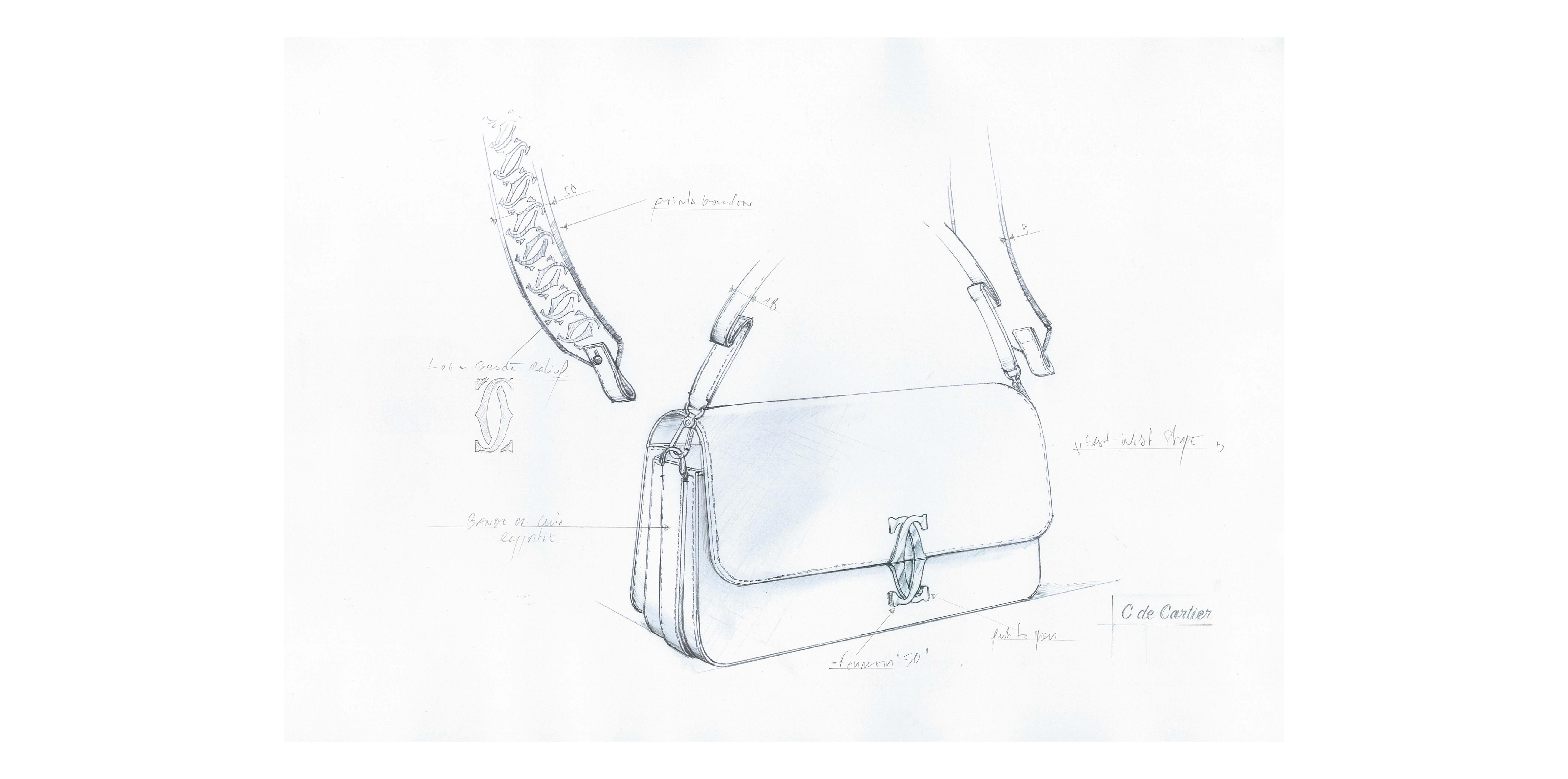
Tell me about some of the tests that you run on the bags?
There’s a quality team, and the bags go through all sorts of tough tests. Sometimes I'm like, Oh my god, we're never going to pass! We make sure the bag will perform best in all environments so it has the quality to be very long lasting. We have a climate room where we run humidity tests with a machine we call the Tropical Machine that mimics tropical humidity. We also test against sweat pH and make sure the color doesn’t transfer.
Can you share more about the decision to do a very curated assortment?
The strategy is in line with what we do for jewelry and watches. The idea of curating a specific launch with one specific silhouette is to express the uniqueness and the preciousness of the object. It’s something that is quite unique to Cartier. It makes each bag singular, through shape, construction, or treatment.
Where do you gather inspiration from?
For me personally, what nourishes me is interiors. Everything from faucets and finishes with engraving and lighting. Every year in April in Italy, the Salone del Mobile event always has amazing inspiration.
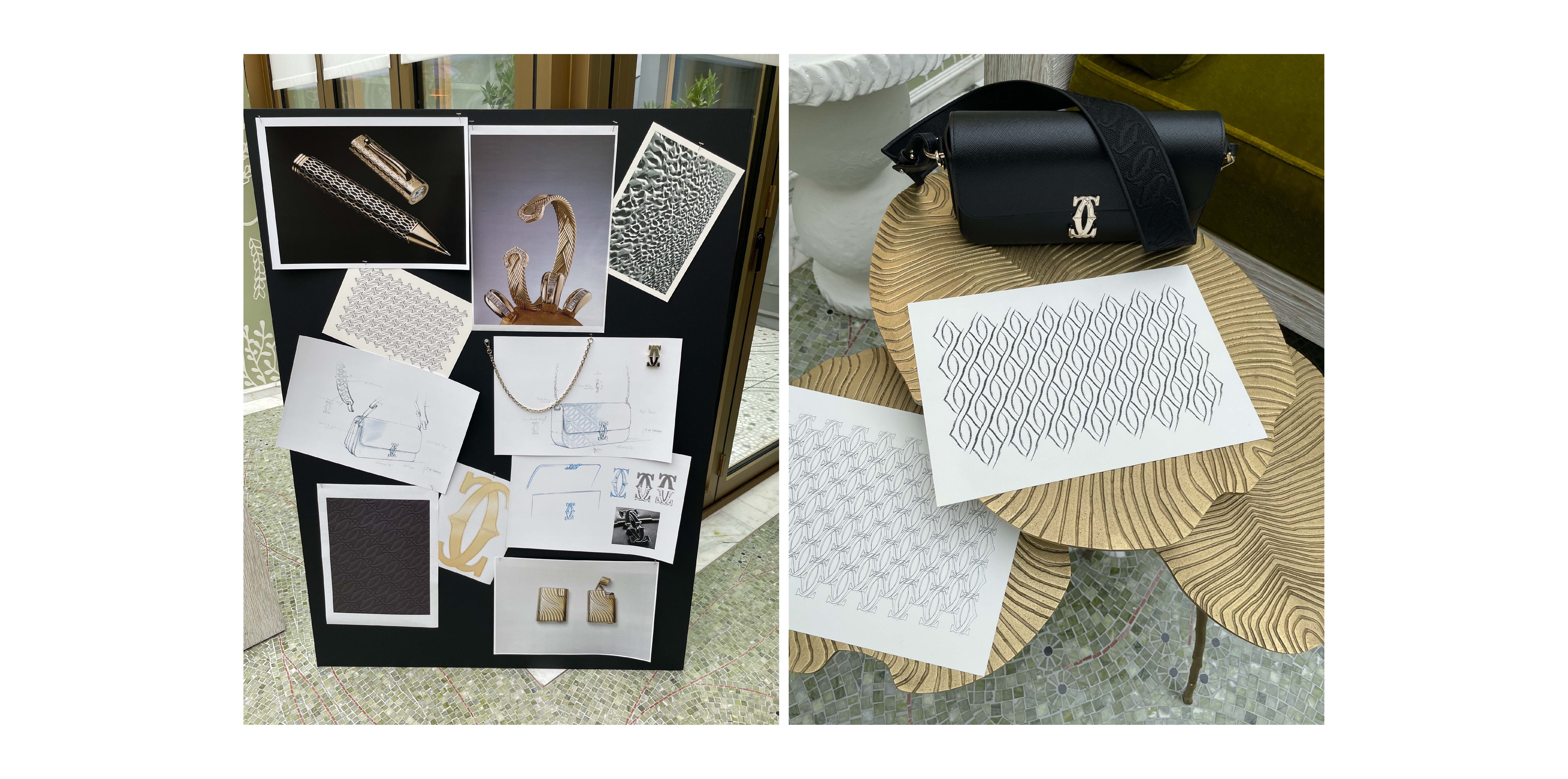
I'm curious how you navigate trends, how you focus on timelessness while still being aware of changes in trends.
There are definitely macro trends that happen, for example gender fluidity and street versus formal. COVID completely turned that upside down, that we went from being quite dressed up into being very comfortable. In terms of timelessness, what I aim for is a bag being classic enough that you never want to give it away. You might put it away for a few seasons, but then you come back to it. It has an enduring quality, which sometimes means actually something quite simple, but it has very beautiful embellishments or, like in this case, has beautiful embroidery.
Can we expect more in the embroidered-bags space? I'm also curious what’s inspiring you for other future Cartier bags.
There are definitely more colors coming in our embroidered bags. There are lots of things we can do with this technique.
As for other ideas, if you look back into the Cartier archives at the beginning of 1900s, they had these little pouches that you wore with dresses. They weren’t exactly hard but were rigid. I think the materials available at the time were limited. I'd like to explore a little more softness yet still with some form. I could see that being a very exciting direction to explore.
SHOP THE EMBROIDERIES COLLECTION
Kat Collings has over 15 years of experience in the editorial fashion space, largely in digital publishing. She currently leads the vision for editorial content at WhoWhatWear.com as the site's editor in chief, having risen through the editorial ranks after joining the company in 2012. Collings is a Digiday Future Leader Awards nominee, was named Buzzfeed's best fashion Instagram accounts of the year, and is a member of the CFDA Awards Fashion Guild. Prior to Who What Wear, Collings worked on styling projects for brands such as Vogue, Teen Vogue, Lucky, and Oliver Peoples. She graduated from UCLA with a BA in communications and calls Los Angeles home.
-
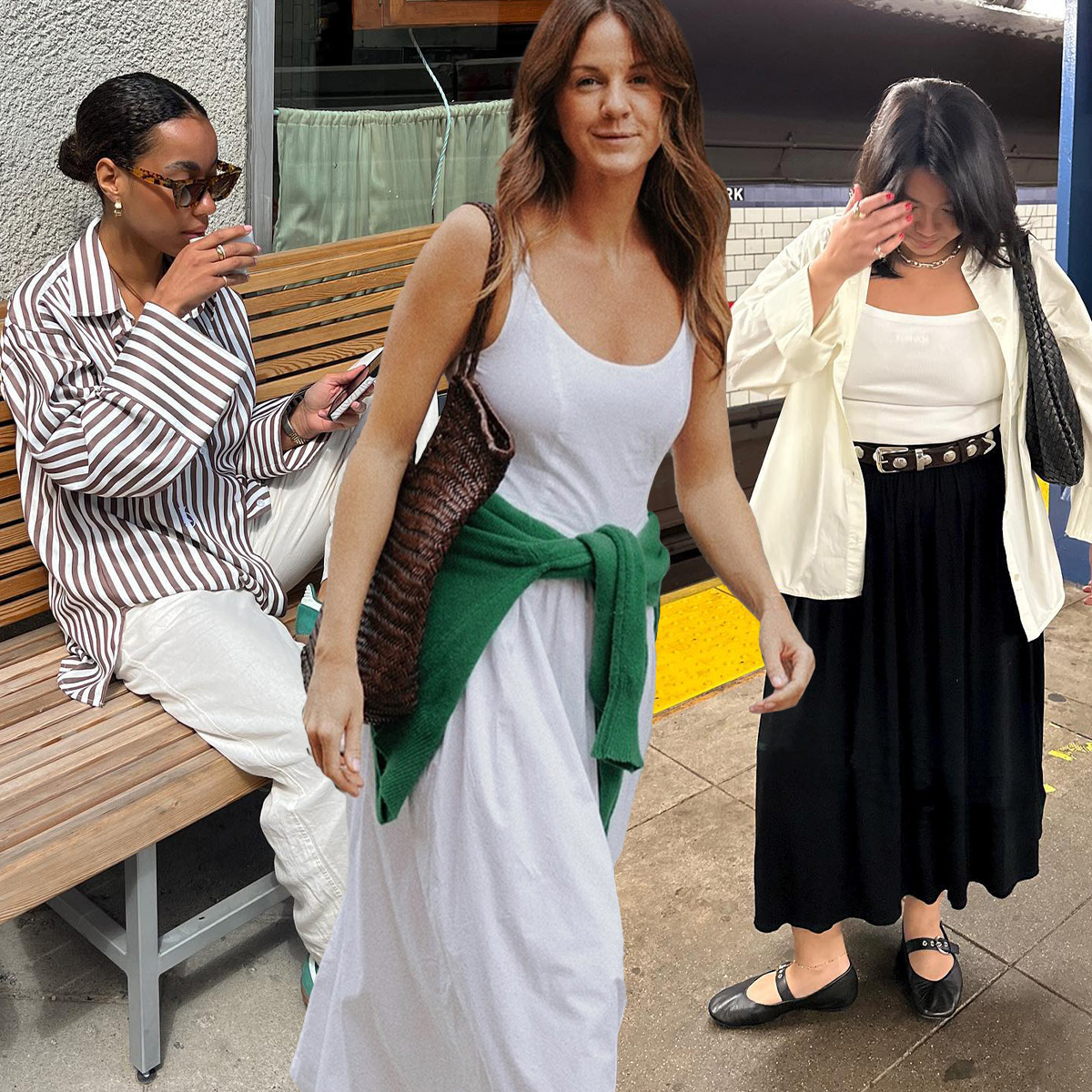 10 Spring Outfit Ideas That Will Make Anyone Look Like a Fashion Person
10 Spring Outfit Ideas That Will Make Anyone Look Like a Fashion PersonBring on the compliments.
By Jennifer Camp Forbes
-
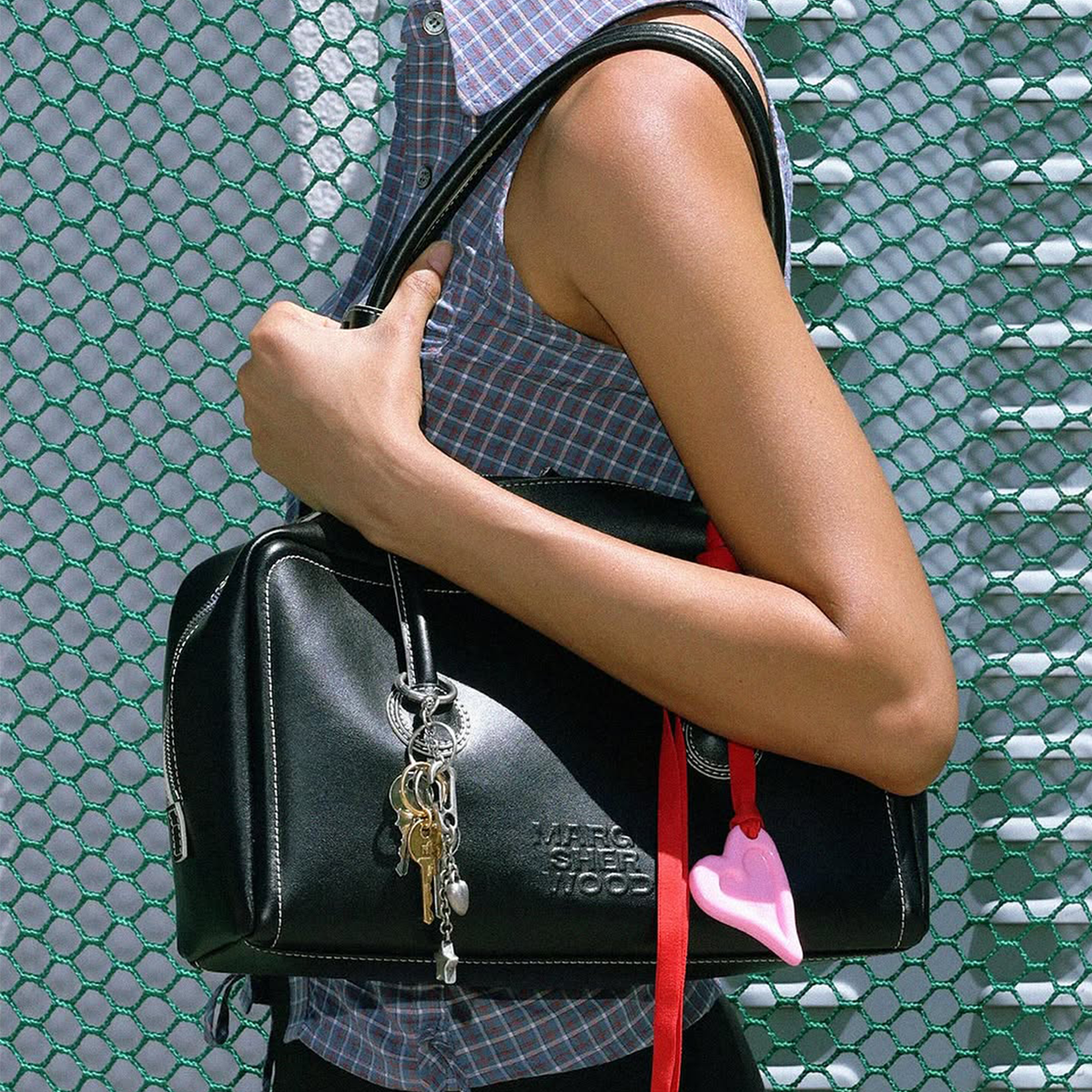 I Live in NYC—This Is the "It" Bag Every Fashion Person Is Wearing
I Live in NYC—This Is the "It" Bag Every Fashion Person Is WearingA new favorite.
By Audry Hiaoui
-
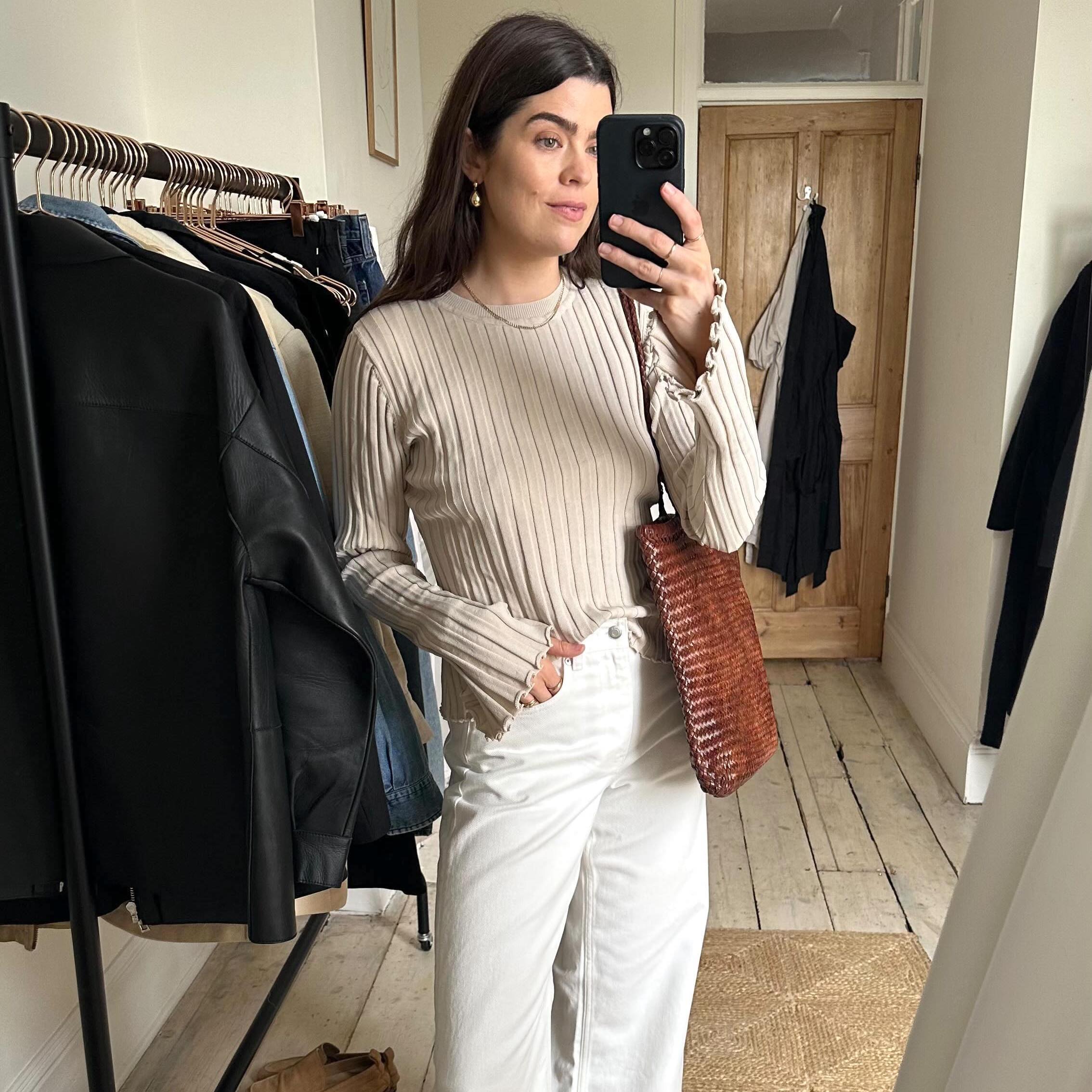 Style Rut? I Have Something for That—33 Stellar Spring Picks From Nordstrom, Zara, and Madewell
Style Rut? I Have Something for That—33 Stellar Spring Picks From Nordstrom, Zara, and MadewellI see chic outfits in your future.
By Jennifer Camp Forbes
-
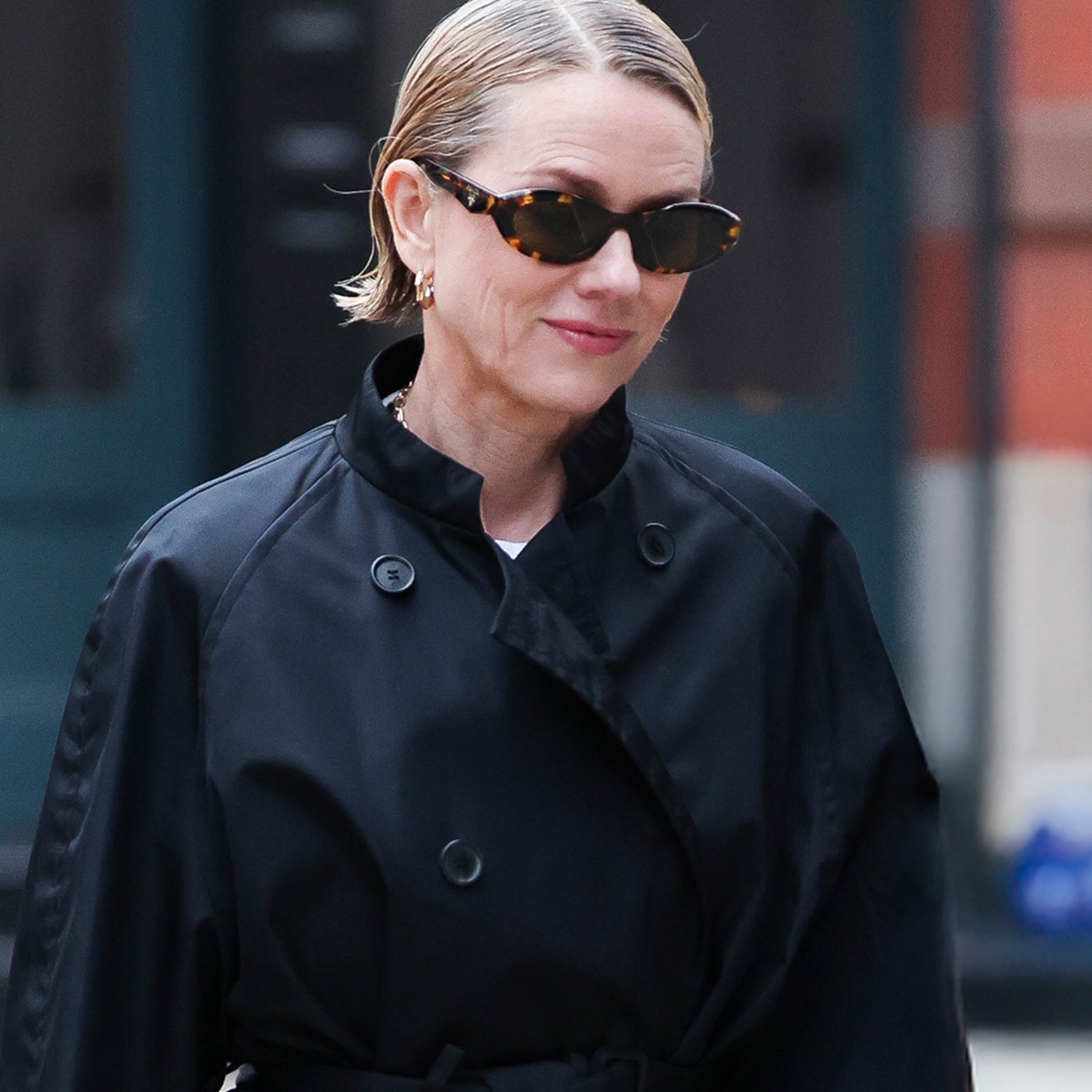 Got Taste? Then This Rising It Bag Should Be Your Next Purchase
Got Taste? Then This Rising It Bag Should Be Your Next PurchaseDon't wait until everyone is carrying one this summer.
By Eliza Huber
-
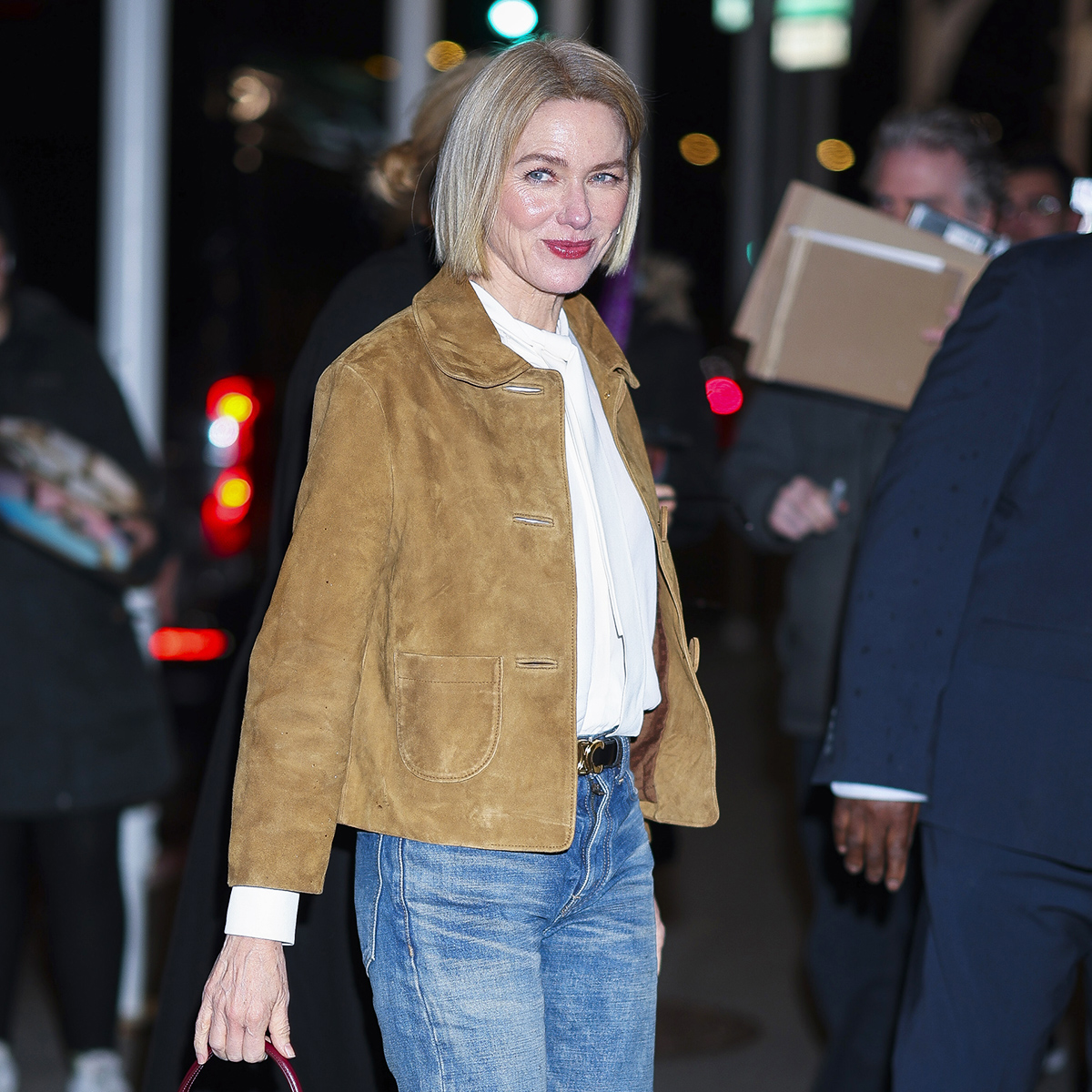 This Is the It Bag Everyone With Expensive Taste Has Their Eye on Right Now
This Is the It Bag Everyone With Expensive Taste Has Their Eye on Right NowElegant is an understatement.
By Allyson Payer
-
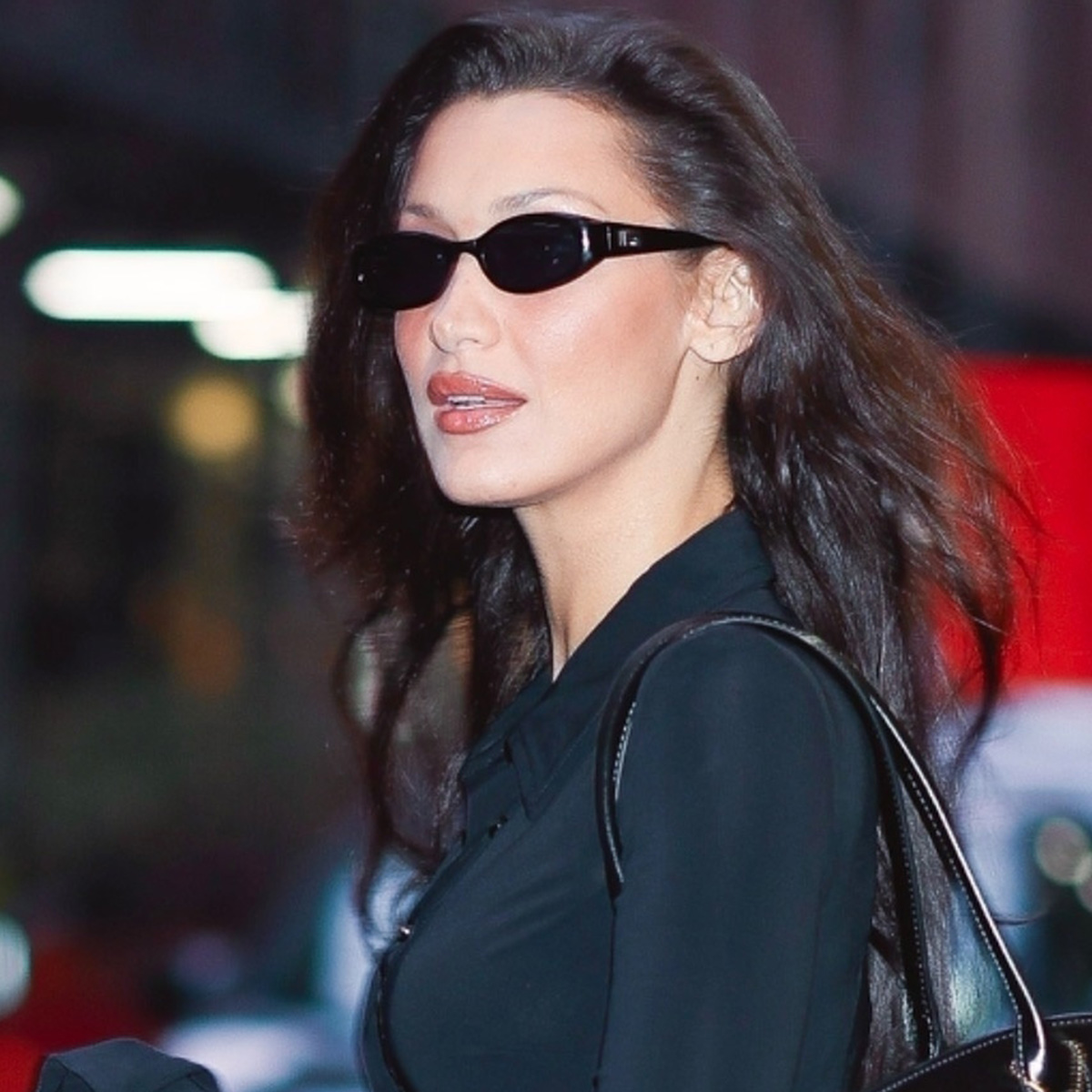 I Give It a Week Until Every Fashion Person in NYC Is Wearing This Under-$500 Designer Bag
I Give It a Week Until Every Fashion Person in NYC Is Wearing This Under-$500 Designer BagIt could be even less than that, though.
By Nikki Chwatt
-
 There Are Bag Trends, and Then There Are Investment Bag Trends—That's What This One Is
There Are Bag Trends, and Then There Are Investment Bag Trends—That's What This One IsCeleb approved.
By Allyson Payer
-
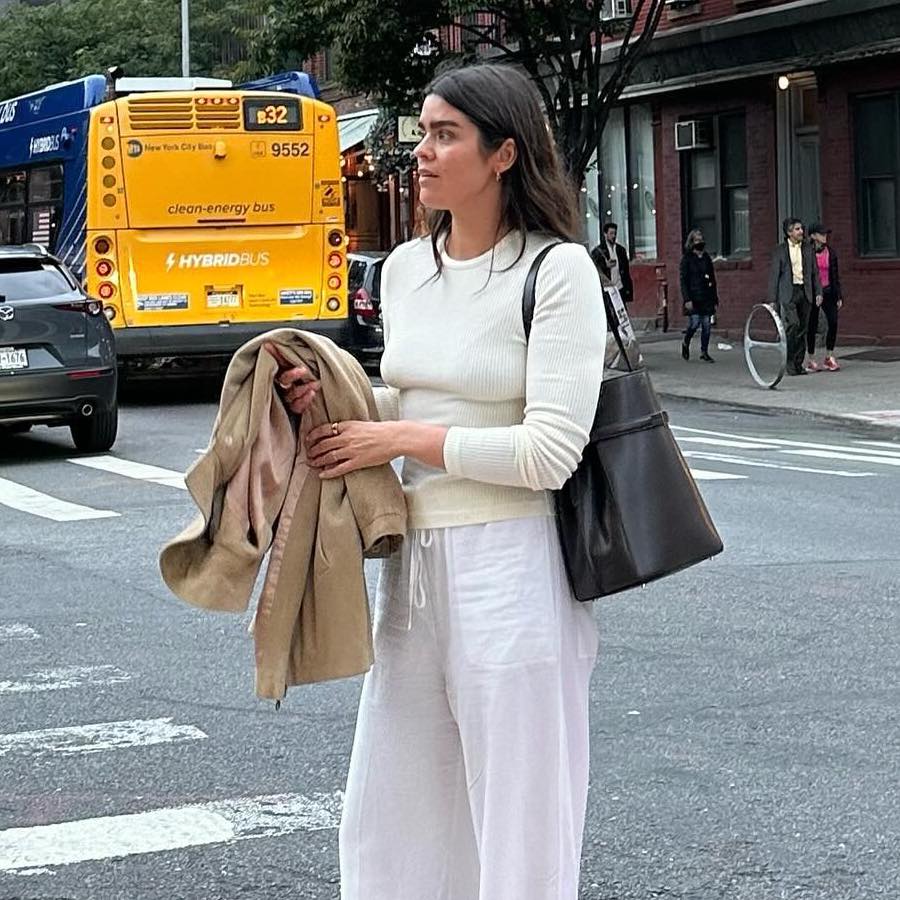 35 Incredibly Chic Luxury Finds I Would Immediately Buy If My Salary Tripled Tomorrow
35 Incredibly Chic Luxury Finds I Would Immediately Buy If My Salary Tripled TomorrowA girl can dream, right?
By Jennifer Camp Forbes
